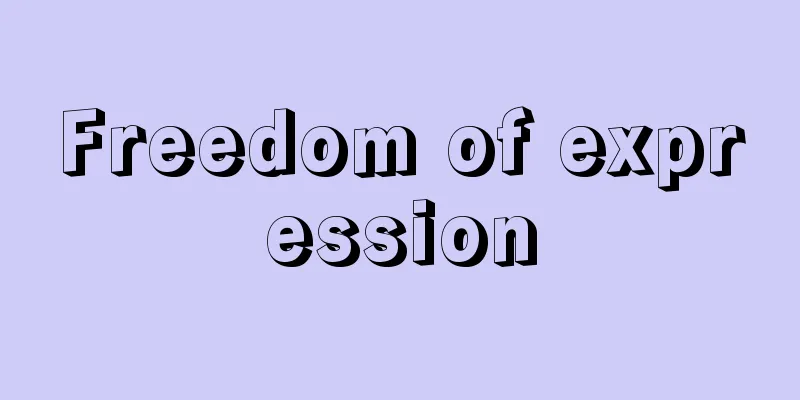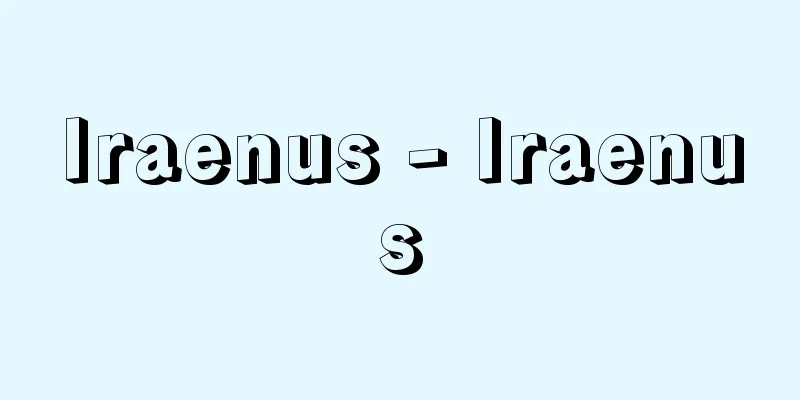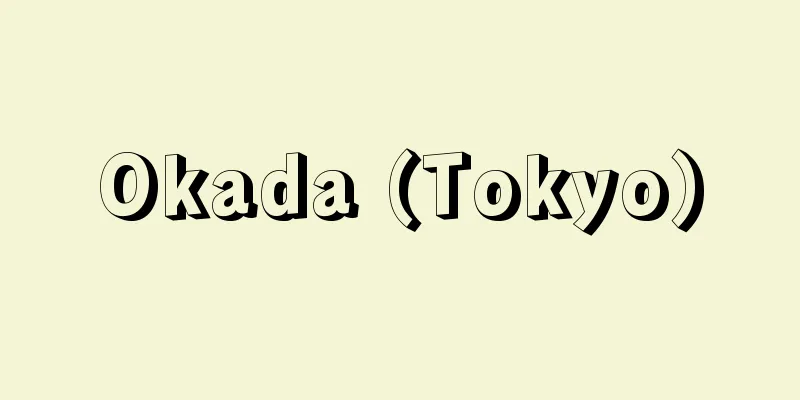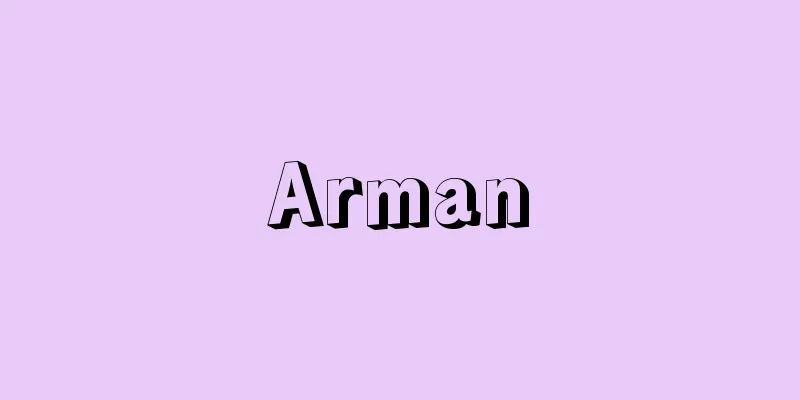Freedom of expression

|
The freedom to express the thoughts, opinions, assertions, emotions, and other mental processes that an individual holds in his or her heart to the outside world through voice, writing, or images. Although it is often used almost synonymously with "freedom of speech," it does not only refer to the freedom of personal expression through spoken or written language, but also includes the freedom of the press, publication, broadcasting, film, and collective demonstrations, which are exercised using more effective means of expression. Freedom of expression is also considered to guarantee not only the freedom of the act of transmitting expression itself, but also the freedom of reporting to gather the materials that are the basis for expressive activities, and the right of the recipient of the expression to know (the freedom to read, listen, and see), which is naturally expected in expressive activities. In that sense, freedom of expression can be said to guarantee the entire process of the free circulation of opinions and information in society. [Junichi Hamada] Establishing freedom of expressionHistorically, freedom of expression has been closely linked to the development of individualism and democracy in modern times. The "consciousness of oneself as an individual" that emerged during the development of the Renaissance and the Reformation movement in the late Middle Ages encouraged people to express their consciousness to the outside world, rather than merely keeping it in their own minds. Expressive activity was also a powerful weapon against religious authorities who tried to eliminate heresy and absolutist monarchs who tried to enforce the absolute authority of the monarchy. For this reason, absolutist countries imposed severe restrictions on freedom of expression, such as a system of prior censorship for the publication of printed matter, a system of deposit payment as a condition for publishing newspapers, and the prohibition of criticism of the king or attacks on the government through charges of lèse majesté, insult to the government, and treason. Even under the Constitution of the Empire of Japan, "freedom of speech, writing, printing, assembly, and association" was guaranteed in Article 29, but this freedom was only "within the limits of the law," and laws such as the Publication Law (1893) and Newspaper Law (1909) stipulated the right of the Minister of Home Affairs to prohibit the sale and distribution of printed matter, the right of the Ministers of the Army and Navy and the Minister of Foreign Affairs to prohibit the publication of articles, and a security deposit system for publishing newspapers. Furthermore, expressions that desecrated the dignity of the Imperial Family were strictly checked through laws such as lèse majesté, and when communist ideology began to flow into Japan under the influence of the Russian Revolution of 1917, the Peace Preservation Law (1925) was enacted to deal with this. As Japan entered a wartime state in the 1930s and 40s, restrictions on freedom of expression were further strengthened, and control of speech was implemented through such laws as the Temporary Control Law for Disturbing Documents (1936), the National Mobilization Law (1938), the National Defense Security Law (1941), and the Temporary Control Law for Speech, Publications, Assembly, Associations, etc. (1941). In light of these experiences of oppression, freedom of expression has come to be guaranteed as one of the most representative freedoms in the declarations of rights of modern constitutions. For example, Article 11 of the Declaration of the Rights of Man and of the Citizen (Declaration of the Rights of Man and of the Citizen), issued during the French Revolution in 1789, stipulates that "the free communication of ideas and opinions is one of the most precious rights of man. Therefore, every citizen may speak, write, and print freely." Also, Article 12 of the Bill of Rights of the American state of Virginia, which gained independence in 1776 through its war of independence against Great Britain, states that "Freedom of speech and of the press are one of the powerful bulwarks of liberty, and that any abridgment thereof must be called a despotic government." Following these declarations of rights, the Constitution of Japan also stipulates in Article 21 that "Freedom of assembly, association, speech, press, and all other forms of expression are guaranteed," and that "censorship shall not be permitted." [Junichi Hamada] Four FunctionsThe reasons why freedom of expression should be guaranteed are, first, that this freedom is essential for the realization of the human values of individuals, and second, that it is important for the existence of a democratic society by enabling the sovereign people to freely debate and form opinions. American legal scholar T. I. Emerson explains the functions of freedom of expression in the following four ways. The first is its function as a way to guarantee the self-realization of individuals. In other words, the act of expression is essential for the development of ideas, intellectual exploration, and self-affirmation, and such mental development allows individuals to realize their personality and human potential. The second is its function as a means to arrive at the truth. In other words, the most sound and most rational judgments can only be made by considering all the facts and arguments presented in support of or against a proposition. The third is its function as a way to guarantee the participation of members of society in social policy-making, including politics. That is, in a democratic society, all its members have an equal right to participate in the process of forming social decisions, and freedom of expression enables members to participate in such policy decisions by ensuring opportunities for public debate. The fourth function is to maintain the balance between stability and change in society. That is, the process of forming a social consensus through free debate in an open society is said to contribute to the formation of a more adaptable and at the same time more stable community by maintaining a tension between healthy division and necessary agreement. [Junichi Hamada] The limits of freedom of expression Freedom of expression thus serves an important function for both individuals and society as a whole, and is therefore the most fundamental condition for maintaining the system of freedom, and in that sense it is said to be "the mother of almost all other forms of freedom." Needless to say, freedom of expression also has limits. For example, it is not permitted to infringe on the reputation or privacy of others through acts of expression, and illegal infringements are subject to criminal penalties and the obligation to pay damages. Furthermore, However, in light of the important function of freedom of expression, this freedom needs to be guaranteed as broadly as possible. Therefore, the idea that there must be sufficient justification for restricting freedom of expression, among other freedoms, has come to be adopted in American court precedents, and has influenced Japanese theory and practice. For example, the system of prior permission for the exercise of rights, which is widely accepted in the field of economic activity, such as the license for entertainment and entertainment businesses, is considered a "prior restraint" for expressive activities and is prohibited in principle. There is also the "clear and present danger" test. This means that restrictions on freedom of expression are permitted only when there is a clear probability that the exercise of this freedom will cause serious harm, and the harm is imminent in time. Furthermore, even if the purpose of restricting this freedom is legitimate, it is required to consider whether there are "alternative, less restrictive means" available to achieve that purpose. In other words, when there are multiple possible means to achieve the same objective, the restrictive means that places the least amount of restrictions on freedom of expression must be selected. In addition, if the wording of a law restricting freedom of expression is abstract and unclear, the law should be invalidated for that reason. This is in consideration of the possibility of a "chilling effect" occurring, whereby people tend to restrain their expressive activities more than necessary under restrictive legislation where it is unclear what expressive activities will be punished. [Junichi Hamada] The current situationThe status of freedom of expression in modern society is characterized by the development of mass media, such as newspapers, magazines, and broadcasting, which carry out expressive activities in an industrial form. In other words, in the social distribution process of opinions and information, the weight of the mass media, which have sufficient financial resources and facilities and employ a large number of professional journalists, is overwhelming compared to the exercise of individual freedom of expression. On the one hand, this development of mass media contributes to the enrichment of the information life of the people, and in that sense, it can be said that the mass media fulfills the role of "trustees" of the people's right to know. However, on the other hand, only a small number of people are able to own and use the mass media, which have a huge amount of information and transmission capacity, and there is a danger of "monopoly of speech." Furthermore, communication sent through mass media often tends to follow a pattern of the same content, and opportunities for minority opinions to be conveyed are extremely rare. Here, the ideal of a "free market of ideas," which is thought to be the inherent goal of guaranteeing freedom of expression, that is, the formula that the most rational outcome will be reached through a large number of expressive individuals freely competing with each other for the various opinions they each hold, cannot be valid. In order to counter these dangers, it is necessary, first of all, to reaffirm the significance of individual speech activities, and in particular to reemphasize the importance of collective actions such as so-called mini-communications, rallies and demonstrations, as well as the freedom to distribute leaflets. In addition, the "social responsibility" that the mass media should bear needs to be emphasized, and, as seen in the argument for so-called "rights of access," the idea of treating the mass media as a kind of "public forum," and creating opportunities for the opinions of ordinary citizens, who have so far been positioned solely as "receivers" of information, to appear in the mass media, is being advocated as a means of revitalizing the "free market of opinions." The Internet, which has spread rapidly since the late 1990s, has come to play a major role as a means for individuals to exercise freedom of expression, through functions such as "home pages" on the World Wide Web (WWW). At the same time, however, it has also exacerbated the negative aspects of freedom of expression, such as defamation, invasion of privacy, and the spread of language that is harmful to minors due to its careless use. [Junichi Hamada] "Freedom of Speech and Publication" by Ito Masami (1959, Iwanami Shoten)" ▽ "What is Freedom of Expression?" by Okuhira Yasuhiro (Chuko Shinsho)" ▽ "Freedom of Expression" by T.I. Emerson, translated by Kobayashi Naoki and Yokota Koichi (1972, University of Tokyo Press)" ▽ "Freedom of Expression" by Okuhira Yasuhiro, 3 volumes (1983-84, Yuhikaku)" ▽ "Why 'Freedom of Expression'?" by Okuhira Yasuhiro (1988, University of Tokyo Press)" ▽ "Constitutional Theory of Television" by Hasebe Yasuo (1992, Kobundo)" [References] | | |Freedom |Freedom | | | | | |Source: Shogakukan Encyclopedia Nipponica About Encyclopedia Nipponica Information | Legend |
|
音声や文字、あるいは画像などにより、個人が内心にもっている思想、意見、主張、感情などの精神作用を、自己の外部に向かって表明する自由。「言論の自由」freedom of speechとほぼ同義に用いられることが多いが、単に個人的になされる肉声や手書きによる表現の自由だけでなく、より効果的な表現手段を用いて行使される、報道の自由、出版の自由、放送の自由、映画の自由、さらに集団示威行動の自由などを含んでいる。表現の自由はまた、表現の伝達行為そのものの自由だけでなく、表現活動を行うための基礎となる素材を収集する取材の自由や、さらに表現活動が当然に予想している表現の受け手の側の知る権利(読む自由、聴く自由、視(み)る自由)をも保障していると考えられる。その意味で、表現の自由は、社会における意見や情報の自由な流通過程の総体を保障しているものである、ということができる。 [浜田純一] 表現の自由の確立表現の自由は、歴史的にみると、近代における個人主義および民主主義の発展と密接に結び付いて確立してきた。中世末期のルネサンスや宗教改革運動の展開のなかで生み出された「個人の人間としての自覚」は、その自覚を単に内心の事柄としてのみとどめるのではなく、外部に対して表現しようという欲求をも促した。また、表現活動は、異端を排除しようとする宗教的権威や、王権の絶対性を貫徹しようとする絶対主義君主に対抗するための、有力な武器でもあった。そのために、絶対主義国家においては、印刷物の発行にあたっての事前検閲制度、新聞発行の条件としての担保金納入制度、国王不敬罪・政府侮辱罪・反逆罪による国王批判や政府攻撃の禁圧など、表現の自由に対して厳しい制約が課せられた。大日本帝国憲法の下においても、第29条で「言論著作印行集会及結社ノ自由」が保障されていたが、それは「法律ノ範囲内ニ於(おい)テ」の自由にすぎず、出版法(1893)、新聞紙法(1909)などによって、内務大臣による印刷物の発売頒布禁止権、陸海軍両大臣および外務大臣による記事掲載禁止権、新聞発行に際しての保証金制度などが定められていた。また、皇室の尊厳を冒涜(ぼうとく)する表現は不敬罪などによって厳しくチェックされ、さらに1917年のロシア革命の影響を受けて共産主義思想が日本にも流入してくるようになると、治安維持法(1925)の制定によって、これに対処した。昭和10年代の戦時体制下に入ると、表現の自由に対する規制は一段と強化され、不穏文書臨時取締法(1936)、国家総動員法(1938)、国防保安法(1941)、言論出版集会結社等臨時取締法(1941)などによる言論統制が行われた。 こうした抑圧の経験に照らして、表現の自由は、近代憲法の権利宣言のなかで、もっとも代表的な自由権の一つとして保障されるようになっている。たとえば、1789年のフランス革命の際に出された『人および市民の権利宣言』(人権宣言)は、第11条で、「思想および意見の自由な伝達は、人のもっとも貴重な権利の一つである。したがって、すべての市民は、自由に発言し、記述し、印刷することができる」と規定し、またイギリスに対する独立戦争を通じて1776年に独立するに至ったアメリカのバージニア州の権利章典は、その第12項で、「言論出版の自由は、自由の有力なる防塞(ぼうさい)の一つであって、これを制限するものは、専制的政府といわなければならない」としている。日本国憲法も、これらの権利宣言に倣って、第21条で、「集会、結社及び言論、出版その他一切の表現の自由は、これを保障する」、そして、「検閲は、これをしてはならない」と規定している。 [浜田純一] 四つの機能表現の自由が保障されるべき意義としては、一つには、この自由が個人の人間としての価値実現のために不可欠であること、もう一つには、主権者たる国民の自由な討論と意見形成を可能にすることにより、民主主義社会の存立にとって重要な意義をもつこと、があげられる。アメリカの法学者T・I・エマスンは、こうした表現の自由の機能を次の四つに分けて説明している。第一は、個人の自己実現を保障する方法としての機能である。すなわち、表現行為は、思想の発達や知的探究や自己確認のために不可欠であり、そうした精神の発達によって、個人は人格および人間としての可能性を実現することができる。第二は、真理に到達する手段としての機能である。すなわち、もっとも健全でもっとも合理的な判断は、ある命題を支持するために、あるいはそれに反対するために提出されるあらゆる事実と議論を考慮することによって、初めて下すことができる。第三は、政治を含む社会的政策決定に社会の構成員の参加を保障する方法としての機能である。すなわち、民主主義社会においては、そのすべての構成員が社会的決定の形成過程に参加する平等の権利をもっており、表現の自由は公開の討論の機会を確保することにより、こうした政策決定への構成員の参加を可能にする。第四は、社会における安定と変化の均衡を維持する機能である。すなわち、開かれた社会(オープン・ソサエテイ)における自由な討論を通じての社会的コンセンサスの形成という手続は、健全な分裂と必要な同意との間の緊張的な関係を維持することによって、より順応性があると同時に、より安定的な共同社会の形成に役だつものとされる。 [浜田純一] 表現の自由の限界表現の自由は、このように、個人にとっても社会全体にとっても重要な機能を営むことによって、自由の体系を維持していくためのもっとも基本的な条件となっており、その意味で、「ほとんどすべての他の形式の自由の母体である」といわれている。いうまでもなく、表現の自由にも限界がある。たとえば、表現行為によって他人の名誉やプライバシーを侵害することは許されず、違法な侵害に対しては刑事罰や損害賠償義務が課せられる。また、 しかし、表現の自由がもっている重要な機能に照らしてみれば、この自由にはできる限り幅広い領域が保障される必要がある。したがって、さまざまな自由権のうちでもとくに表現の自由を規制する法律については、制約を設けるべき理由が十分に証明されなければならないという考え方が、アメリカの裁判所の判例でとられるようになり、日本の学説や実務に対しても影響を及ぼしている。たとえば、風俗営業の許可などにみるように、経済活動の領域においては広く認められている権利行使の事前許可制度は、表現活動については「事前抑制」とされ、原則として禁止される。また、「明白かつ現在の危険」clear and present dangerのテストということがいわれる。これは、表現の自由の規制は、この自由の行使によって重大な害悪が発生する蓋然(がいぜん)性が明白であり、かつその害悪が時間的に緊急切迫している場合にのみ許される、とするものである。さらに、この自由に対する規制の目的が正当である場合であっても、その目的を達成するうえで「より制限的でない他に選びうる手段」がないかどうか検討することが要求される。つまり、与えられた目的との関係では同じ達成効果をもつ手段が複数考えられる場合、そのなかで表現の自由に対する制約が最小限度である規制手段が選択されなければならない。このほか、表現の自由を規制する法律の文言が抽象的で不明確である場合には、この法律はそれだけで無効とされるべきであるとされる。これは、いかなる表現活動が処罰されることになるのか明確でない規制立法の下では、人々は必要以上に表現活動を自制するようになりがちであるという、「萎縮(いしゅく)効果」chilling effectが生じうる可能性に配慮したものである。 [浜田純一] 現代の状況現代社会における表現の自由の状況は、産業的形態により表現活動を行う新聞、雑誌、放送などのマス・メディアの発達によって特徴づけられる。すなわち、意見や情報の社会的流通過程において、十分な資力や設備をもち、また多数の職業的ジャーナリストを擁するマス・メディアの占める比重は、個人的な表現の自由の行使に比して圧倒的なものとなっている。このようなマス・メディアの発達は、一方では国民の情報生活の充実に寄与するものであり、その意味で、マス・メディアは、国民の知る権利の「受託者」としての役割を果たすものであるということができる。しかし、他方では、巨大な情報量と伝達能力をもつマス・メディアを所有し利用できるのは少数の人々にすぎず、そこには「言論独占」の危険が存在していると考えられるし、また、マス・メディアを通じて送られるコミュニケーションは、しばしば同一の内容にパターン化しがちであり、少数者の意見が伝えられる機会はきわめてまれとなっている。ここでは、表現の自由の保障が本来的に目標としていると考えられる「意見の自由市場」marketplace of ideasの理念、つまり多数の表現主体が各人のもっているさまざまな意見を自由に戦わせることを通じてもっとも合理的な結果に至るという定式は、成立しえなくなる。 こうした危険に対抗するためには、一つには、個人的な言論活動がもつ意義を再確認することが必要であり、とくにいわゆるミニコミや集会・デモなどの集団行動、あるいはビラはり、ビラまきの自由などのもっている重要性が、改めて強調されなければならない。また、マス・メディアが担うべき「社会的責任」が強調される必要があるとともに、いわゆる「アクセス権」の主張にみられるように、マス・メディアを一種の「公共の広場」public forumとしてとらえ、これまでもっぱら情報の「受け手」の地位に置かれてきた一般市民の意見をマス・メディアに登場させる機会をつくりだそうとする考え方も、「意見の自由市場」を活性化させるための一手段として主張されるようになっている。 1990年代後半から急速に普及したインターネットは、WWW(World Wide Web)上の「ホームページ」などの機能によって、個人が表現の自由を行使する手段として、大きな役割を果たすようになっているが、同時に、その安易な利用による名誉毀損(きそん)やプライバシー侵害、あるいは青少年に有害な表現の流布など、表現の自由がもたらすマイナス面も深刻化させている。 [浜田純一] 『伊藤正己著『言論・出版の自由』(1959・岩波書店)』▽『奥平康弘著『表現の自由とはなにか』(中公新書)』▽『T・I・エマスン著、小林直樹・横田耕一訳『表現の自由』(1972・東京大学出版会)』▽『奥平康弘著『表現の自由』全3巻(1983~84・有斐閣)』▽『奥平康弘著『なぜ「表現の自由」か』(1988・東京大学出版会)』▽『長谷部恭男著『テレビの憲法理論』(1992・弘文堂)』 [参照項目] | | | | | | | | | |出典 小学館 日本大百科全書(ニッポニカ)日本大百科全書(ニッポニカ)について 情報 | 凡例 |
>>: Expressionism (English spelling) Expressionismus German
Recommend
Yoneyama Jinku - Yoneyama Jinku
A folk song from Niigata Prefecture. Yoneyama is ...
"Modern Miracles"
…Published in 1814-15 (Bunka 11-12). This is the ...
Huarache (English spelling)
Footwear worn by the indigenous people of Mexico. ...
Lord Dunsany
[1878-1957] Irish playwright and novelist. He wrot...
Kudzu starch
Starch made from the roots of kudzu. It is consid...
Worsaae (English spelling) Jens Jacob Asmussen Worsaae
Danish archaeologist. He served as director of th...
Novorossiisk
...Population: 1,189,000 (1991). It was called Ek...
Okunosenbon
...At the entrance to Mt. Omine, there is Kinpuse...
Nishinomiya [city] - Nishinomiya
Located in the southeastern part of Hyogo Prefectu...
glide path
…The left side of the approach direction is modul...
HPLC - High Performance Liquid Chromatography
Abbreviation for high performance liquid chromato...
Rokudo-e
Also called "Rikudo-e." These paintings ...
Household durable consumer goods machines
...This is a machine in the true sense of the wor...
Takanosu [Hot Spring] - Takanosu
This hot spring is located in Sekikawa Village, Iw...
Алексей Николаевич Куропаткин/Aleksey Nikolaevich Kuropatkin
Russian general. Born into a military family in P...









